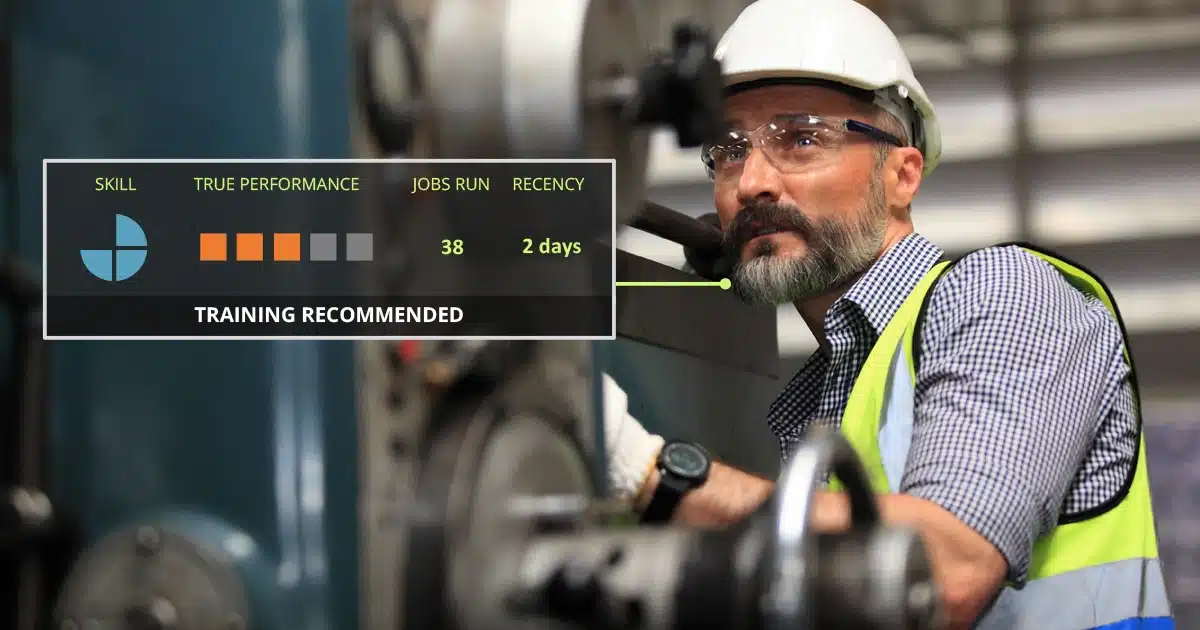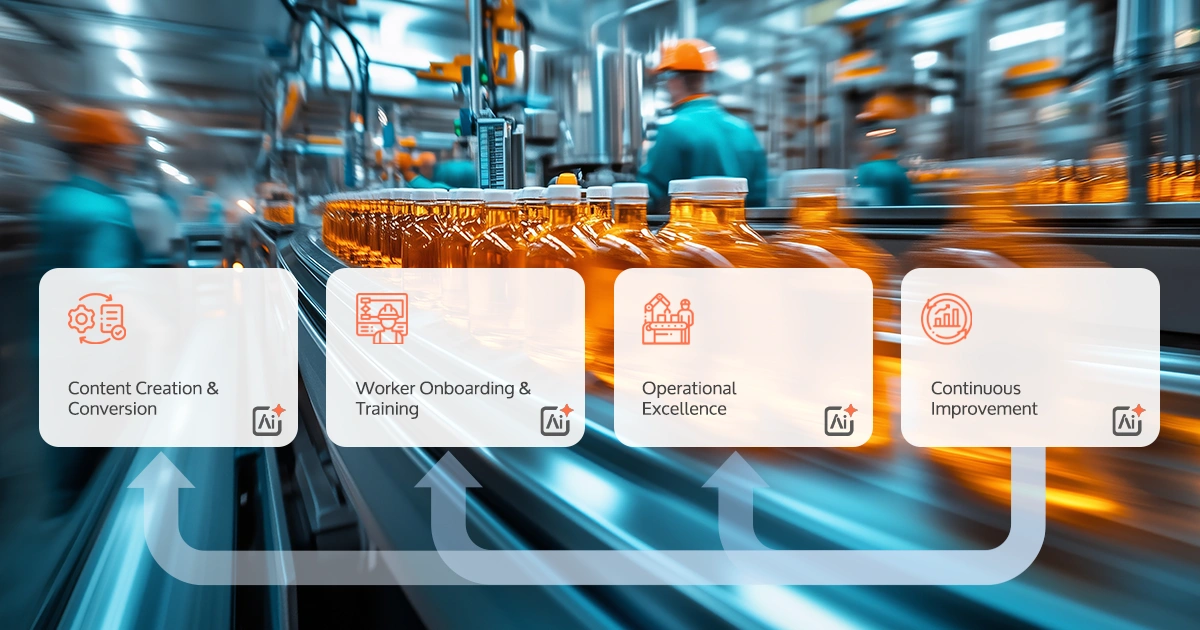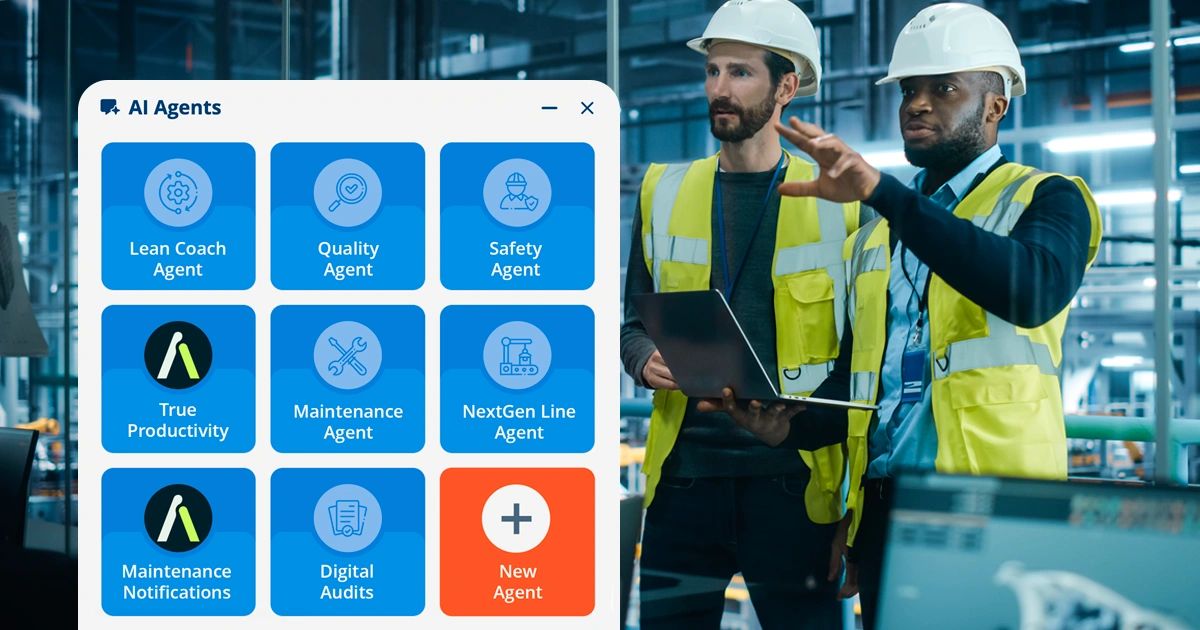Learn the difference between skills development and training in manufacturing, how they are important, and how the management of them can be improved through continuous learning methodologies and emerging technology.
At first glance, training and skills development seem synonymous and are often used interchangeably, but they have different purposes and goals. However, despite these differences, both are equally important for every organization, especially in the case of the manufacturing industry. According to Training Magazine, 57% of manufacturing organizations reported training and workforce development budget increases to address the widening skills gap and the skilled labor shortage.
At the most basic level, training is the process companies use to build the skills of new employees so they’re well-equipped to perform the role that they were hired for. While skills development, on the other hand, includes ongoing education, mentoring, and professional experiences that help employees grow into future roles and opportunities.
Both are extremely valuable to overall organizational growth and success, however, it’s important to apply them at the right time and in the right way. Read more on both skills development and training in manufacturing, why they are important, and how they can be improved and enhanced through the proper application of learning technology:
- What is Skills Development in Manufacturing
- What is Training in Manufacturing
- How Can Technology Improve Manufacturing Skills Development and Training
What is Skills Development in Manufacturing
Skills development goes beyond training by aiming to enhance a broader set of competencies and capabilities. It focuses on building a more well-rounded and adaptable workforce encompassing not only the acquisition of specific skills, but also the improvement of problem-solving abilities, critical thinking, creativity, adaptability, and continuous learning.
Skills development in manufacturing refers to the process of enhancing the knowledge, abilities, and competencies of individuals involved in the manufacturing process. It involves providing training and education to workers, engineers, and technicians to improve their technical, operational, and problem-solving skills. By providing training and development opportunities, manufacturing organizations can ensure that their workforce possesses the necessary skills and knowledge to perform their jobs effectively and efficiently.
Many manufacturing industries face a shortage of skilled workers. Skills development programs help bridge the gap by training existing employees or new hires in the required competencies.
Overall, skills development in manufacturing is crucial for maintaining competitiveness in a rapidly changing industry. It ensures that the workforce remains adaptable, skilled, and capable of meeting the evolving demands of modern manufacturing processes.
Implementing skills management software programs allow manufacturing organizations to digitize and effectively track worker skills, development progress, and intelligently assign work based on skills competencies, improving work allocation and workforce utilization.
What is Training in Manufacturing
Training in manufacturing primarily focuses on imparting specific knowledge, skills, or information to individuals. It often involves structured and organized programs designed to teach employees how to perform specific tasks or operate machinery and equipment. Training is often of shorter duration and may be task-specific or role-specific. It is designed to quickly bring employees up to a certain proficiency level in their current job.
The specific type of training required in manufacturing depends on the roles and responsibilities of the individuals involved, the company’s processes, and the industry in which they operate. Training in manufacturing is essential for several reasons:
- Safety: Manufacturing processes often involve machinery, equipment, and materials that can be hazardous. Proper training ensures that employees understand and follow safety protocols, reducing the risk of accidents and injuries.
- Quality Control: Quality in manufacturing is a critical, essential factor. Training programs teach employees how to maintain consistent product quality through accurate measurements, inspections, and adherence to quality standards.
- Operational Efficiency: Training helps employees become more efficient in their tasks, reducing downtime, minimizing waste, and optimizing manufacturing processes.
- Technology: Manufacturing is becoming increasingly technology-driven. Training equips employees with the skills to operate and maintain advanced machinery and systems.
- Productivity: Engaged workers tend to be more productive, contributing to increased output and profitability for the manufacturing company.
- Compliance: Manufacturing is subject to various regulations and industry standards. Training ensures that employees understand and comply with these requirements, avoiding legal and regulatory issues.
Effective training programs are designed to align with the organization’s goals and objectives, ensuring that the workforce is well-prepared and capable of contributing to the success of the manufacturing operations.
In summary, training in manufacturing is a subset of skills development, with a narrower and more specific focus on teaching job-related skills and knowledge. Skills development, on the other hand, is a more comprehensive and ongoing process that aims to develop a well-rounded and adaptable workforce capable of meeting the evolving challenges of the manufacturing industry. Both training and skills development are important for the success of a manufacturing organization, and they often complement each other in the development of a skilled and competent workforce.
How Can Technology Improve Manufacturing Skills Development and Training
Technology can significantly enhance manufacturing skills development and training by making the process more efficient, effective, and accessible. Incorporating these technological advancements into manufacturing skills development and training can lead to a more skilled and adaptable workforce, increased safety, reduced training costs, and improved overall manufacturing efficiency.
For example, technology enables experts to remotely assist and guide trainees through complex tasks. Workers can wear smart glasses or use mobile devices to share live video streams and receive real-time instructions. AI-driven connected worker solutions can assist in creating personalized learning paths for trainees based on the work they do, their progress, and their learning style.
Smart connected worker platforms, Learning Management Systems (LMS), and mobile apps can provide access to a wide range of training materials, including video tutorials, interactive modules, and assessments. These platforms allow workers to learn at their own pace and on their schedule, reducing the need for expensive and time-consuming in-person training.
Augmentir is the world’s leading, smart, connected worker solution using the foundational AI technologies underpinning ChatGPT to enhance manufacturing training, onboarding, and skills development. Leading manufacturing organizations are using our smart, connected worker suit and AI-driven insights to foster environments of continuous learning, and make skills development and training processes more personalized, accessible, and effective.
Schedule a live demo to learn why manufacturing leaders are choosing us to improve the training lifecycle with digital skills management tools, real-time insights, and more.




